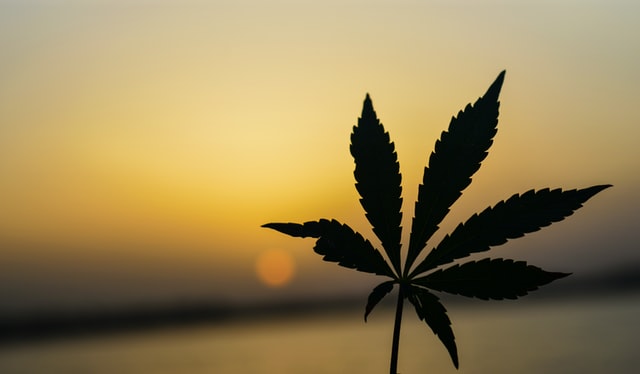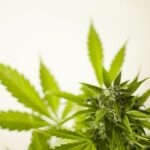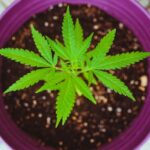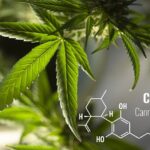What is broad-spectrum CBD? The popularity of CBD is skyrocketing thanks to its multiple properties. Thus, you can find a large number of CBD formats on the market. From CBD oils to edibles or CBD vape juice, users have a lot of products to choose from. But besides CBD formats, you can also find different types of CBD products depending on their content. If you have researched or purchased CBD products, you will likely find that most of them are either full-spectrum CBD. But there is another CBD product that is also very interesting, even if it is not as popular: broad-spectrum CBD. This product is quite similar to full-spectrum CBD. In this article, we will explore the differences (and similarities) between both products.
What Is CBD?
CBD (cannabidiol) is a cannabinoid, that is, an active compound of cannabis. Together with THC (tetrahydrocannabinol), CBD is the most abundant cannabinoid in cannabis. Cannabidiol stimulates the cannabinoids receptors that are found throughout your body (receptors CB1 and CB2). These receptors are part of the endocannabinoid system (ECS). The ECS is common to all animals and regulates mood, pain, memory, locomotor activity, responses to rewards, or even reproductive functions.
What are the effects of CBD?
- Alleviate pain
- Reduce inflammation
- Reduce seizures in epilepsy patients
- Improve mood and prevent mood swings
- Relieve symptoms of anxiety and depression
- Boost appetite
- Alleviate certain skin conditions
- Reduce diabetic neuropathy (nerve damage due to diabetes)
- Improve cognitive issues
- Fight insomnia
Moreover, cannabidiol is not a psychoactive substance. Hence, you cannot get high by using it.
But cannabidiol is not the only active compound of cannabis. Cannabis has other active ingredients. You will learn more below.
Active Compounds of Cannabis
Cannabis has many active compounds. Arguably, cannabinoids are the most potent. While the number of cannabinoids may vary depending on the species of cannabis, there are between 66 and 113 cannabinoids. Besides CBD, some other cannabinoids that cannabis contains are:
- THC (tetrahydrocannabinol): This is the most abundant cannabinoid together with CBD. It is responsible for the psychoactive effects of cannabis. Nevertheless, THC also seems to have therapeutic effects. However, it remains illegal in most parts of the world.
- CBN (cannabinol): While not as popular as CBD, cannabinol (CBN) is making its way in the legal cannabinoids market. Thanks to strong calming properties, cannabinol is a good natural aid to relax or fight insomnia. On the negative side, it can produce mildly intoxicating effects.
- CBG (cannabigerol): This cannabinoid is present in cannabis at very low levels (usually less than 1%). Due to this low content, CBG is usually obtained from genetic manipulation of the plants or by experimenting with different breeding techniques. CBG may be helpful to fight glaucoma or reduce the symptoms of inflammatory bowel disease. However, it is expensive and not so easy to find.
The number of cannabinoids can vary depending on the cannabis plant. There are three species of cannabis: Cannabis Indica, C. Sativa, and C. Ruderalis. Cannabis Sativa contains higher levels of CBD, while C. Indica contains higher levels of THC. That is why CBD and the rest of legal cannabinoids usually come from hemp, an industrial crop of C. Sativa that has low levels of THC.
Besides cannabinoids, cannabis also contains other phytochemicals, such as terpenes, flavonoids, or essential oils. These chemical compounds also have effects on your health.
CBD Full Spectrum Vs. Broad Spectrum
What is the difference between full-spectrum and broad-spectrum CBD? It is very simple, actually. Full-spectrum CBD contains all the chemical compounds of cannabis. That is all the cannabinoids, terpenes, flavonoids, or essential oils that the plant contains. And when we say all cannabinoids, we mean exactly that. Therefore, full-spectrum CBD also contains THC.
Broad-spectrum CBD also includes all the compounds of the cannabis plant, but without THC. That is, broad-spectrum CBD does not contain THC.
But which one is better? Full-spectrum or broad-spectrum CBD? Let us talk about the entourage effect first. According to a 1998 study, cannabinoids (including CBD) work better and are more effective in synergy, interacting with each other, rather than in isolation. While the entourage effect has not been proven so far, there are many CBD —and cannabis— enthusiasts and connoisseurs that agree with it. However, full-spectrum CBD cannot contain more than 0.3% THC. That amount is so minimal that is hard to tell whether it has an impact on the entourage effect or not. Also, since the levels of THC are so low, full-spectrum CBD cannot cause psychoactive or mind-altering effects. Nevertheless, full-spectrum CBD could result in a false positive in a drug test. That occurs because some drug tests can detect even the smallest traces of THC.
On the other hand, since it does not contain any traces of THC, broad-spectrum CBD will not make you fail on a drug test. And it will likely help you enjoy all the benefits of the entourage effect. Therefore, using broad-spectrum CBD can bring you all the benefits of CBD without any risks.

CBD Isolates
CBD isolates only contain cannabidiol. While they will not bring about the entourage effect, CBD isolates are still very useful. Even if they do not contain the rest of the chemical elements of cannabis, isolates have the same properties and effects as the other types of CBD products, such as full-spectrum or broad-spectrum CBD. And of course, it will never show up in a drug test.



